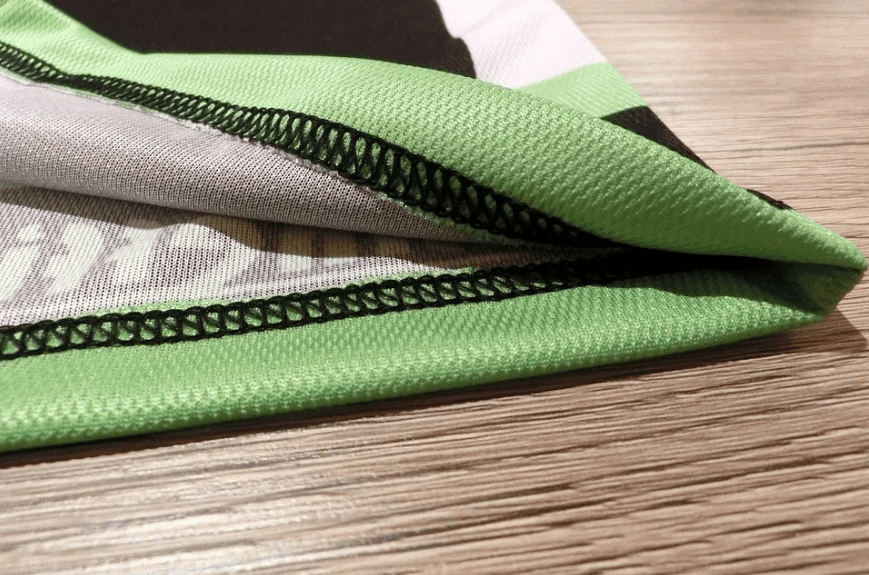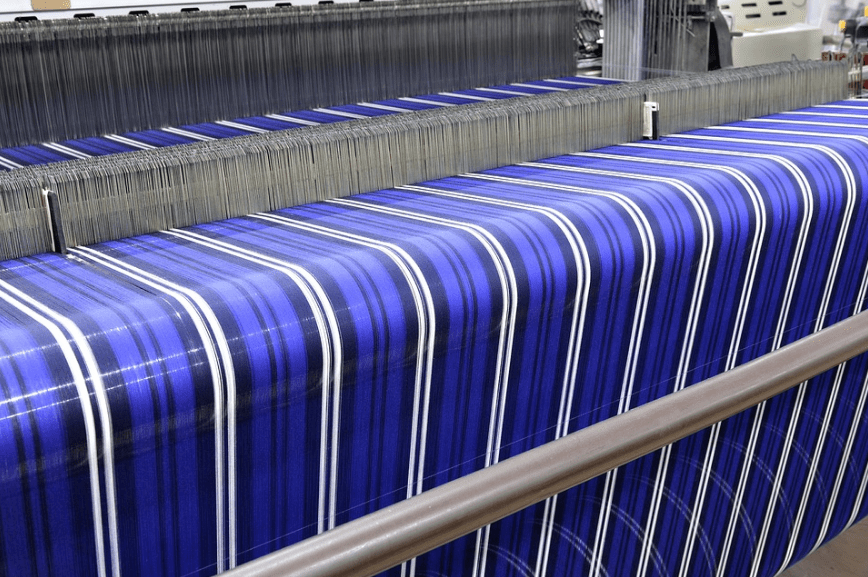Although almost everyone has heard about polyester, only a small percentage of people know what it is. Very few people read the labels on garments when shopping; that is why they’re unaware of what they are wearing. Therefore, there is a possibility that you might have numerous polyester clothes in your closet but are unaware of them because you’ve never paid attention to the details.
Polyester is a synthetic fabric used in various industries, but it is most commonly found in the apparel or fashion industry. Polyester is available in its purest form, blended form, and also mixed with polyester stretch yarns.
Polyester has evolved more than any other existing fabric over the years. However, the most significant advantage of this fabric is that you can shape it into anything you want. It will also give your clothes the perfect properties that will help them look and feel better. Find more useful tips, such as how to wash black clothes properly, in this post.
Following a list of facts about polyester:
- Durable
Polyester is a durable and long-lasting fabric that does not easily wrinkle. Therefore, people can rely on this fabric to cope with environmental conditions and lengthy physical activities.
Polyester clothes are resistant to rain and sweat. People who choose to wear them feel confident that they will not wrinkle or shrink when treated properly, stay flexible, and in good shape.
- Has Unique Properties
There are many differences in quality within the synthetic varieties, just as there are in natural materials. It is not related to the material itself but instead with how it is processed and applied. Besides that, polyester also has some unique properties that ensure that your garment lasts longer, such as its high tensile strength and resistance to tearing.
In addition, polyester clothing is less prone to wrinkling and loses minimal color. Due to its color retaining ability, the most updated print methods can also be used with polyester clothing, resulting in vivid colors that are not affected easily by external factors.
Polyester is often mixed with natural fabrics like cotton and linen to provide optimal fit and color preservation.
- Soft and Comfortable
Polyester is the most used fabric in sportswear due to its resilient characteristics. When polyester is combined with elastane for further flexibility, it offers an incredibly comfortable and skin-tight fit. Polyester repels moisture and evaporates without leaving any stains. As a result, you and your clothes will remain fresher for a longer time.
Furthermore, due to its strong fibers and wrinkle resistance, your clothing will keep its form throughout the day.
- Extremely Versatile
Polyester is a versatile fabric, and therefore it has a wide range of applications. You can find it in a variety of knitting and weave variants. The fabric’s look can range from matt to glossy, fuzzy, wooly, fine, coarse, pliable, and stiff, depending on the fitness of the fiber, fabric structure, and finishing.
This shows that the fabric’s finish is decided by how the raw material is treated rather than the material itself. Polyester, unlike linen, is a multi-purpose fabric that can be made according to your specifications, making even the most unusual patterns more attractive.
- Easy to Take Care of
As polyester is made from strong fibers, it is a long-lasting material that retains color and form. Polyester, unlike other synthetic fabrics, is more heat resistant. As a result, it can be cleaned at a maximum temperature of 104°F if necessary. Polyester dries fast and doesn’t require ironing due to its low-maintenance nature.
However, the manufacturing of polyester is not any less environment-friendly than that of cotton, linen, or wool, and its usage is far more sustainable.
Furthermore, polyester is among the few recyclable fabrics, and many manufacturers use it in their designs. You can even recycle the polyester many times without losing its quality, which is a real eye-opener for the fashion industry. Hence, this property increases its appeal in the fashion industry and places it as the future fabric.
- Can Be Dyed at Initial Stages
Polyester can be dyed at an early stage before it is spun into yarn. And to create colors, the desired colors are added into the polymer mixture, or pre-colored polymer chips are used. Of course, special dyes and treatment are needed while being careful since the odor it gives off is extremely dangerous to inhale.
However, its wrinkle-free qualities, beautiful color saturation, and low cost make it just as appealing as silk.
- Resistant to Moisture
Polyester fabrics are good at resisting liquids and moisture. Thus it will take away the moisture rather than soaking it up, making it a commonly used material for apparel and gear that can withstand rain and snow. Polyester’s ability to resist moisture also contributes to its stain resistance.
However, because of polyester’s moisture resistance, it is a less breathable fabric. So, if you are sweating while wearing the material, the cloth will retain the moisture instead of wicking it away, making you feel hot and sticky.
- Wrinkle-Free
Although linen and cotton fabrics can retain wrinkles and must be ironed, polyester is wrinkle-resistant, and it holds its shape, drape, and stiffness better. The wrinkle resistance of the polyester was the property that made it highly popular in the 1970s as a substitute for garments that required frequent washing and ironing to minimize wrinkling.
- It Can Be Rough
Polyester, unlike other textile fabrics, doesn’t have a luxurious feel to it. Poorly manufactured polyester might feel slightly coarse to delicate skin. However, different production and weaving techniques will help change its texture, making some polyester rough.
- Non-Biodegradable
Most fibers are biodegradable, meaning that they will decompose over time and will not clutter landfills. On the other hand, most polyester yarns have a negative environmental impact as they are difficult to break down and are not easily biodegradable.
- Its Heating Point is Similar to Polyamide
Polyester has a similar melting point as polyamide, which ranges from 482ᵒF to 572ᵒF. The polyester fibers shrink and melt in the presence of heat, producing a hard black residue. The fabric gives a strong, pungent smell when it is burnt.
- Has a Greater Density than Polyamide Fibers
The density of polyester fibers is modest, with a specific density of 1.38 or 1.22 depending on the type. Polyester fibers have a higher density than polyamide fibers but a lower density than rayon fibers. As a result, these polyester fiber fabrics are medium in weight.
- The Acids Do Not Affect the Polyester Fabric
Polyester fibers are resistant to strong acids at room temperature. Even at boiling temperatures, the weak acids have little impact on polyester fiber fabrics unless exposed for several days—prolonged contact to boiling hydrochloric acid damages the fibers, whereas 96 percent sulfuric acid induces fiber disintegration.
- Resistant to Organic Solvents
Polyester fibers are resistant to organic solvents, so cleaning and stain removal chemicals do not harm them; however, heated m-Cresol can dissolve the fibers. Some phenol-trichloromethane combinations can also dissolve polyester fabrics. Overall, oxidizing chemicals or bleachers do not damage the polyester.
Polyester – A Durable Fabric
Polyester is a durable fabric with heat and moisture resistance properties. Upon learning some of the amazing facts about polyester, we can safely say that it is definitely worth your money as it’s not only soft but doesn’t require much effort and maintenance compared to other fabrics.
Therefore, polyester lasts longer and be more wrinkle-resistant than others, making it an ideal fabric type that most fashion designers use. On top of everything, polyester is the most common material used in sportswear, thanks to its non-absorbent and insulating properties.


